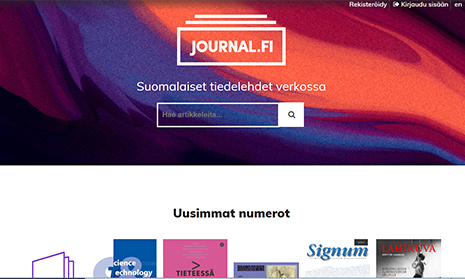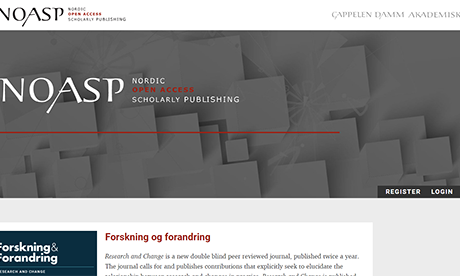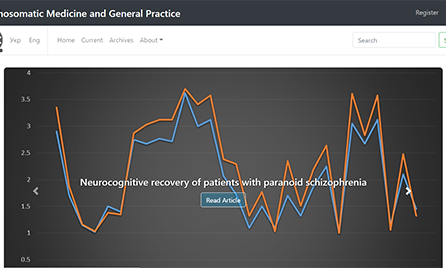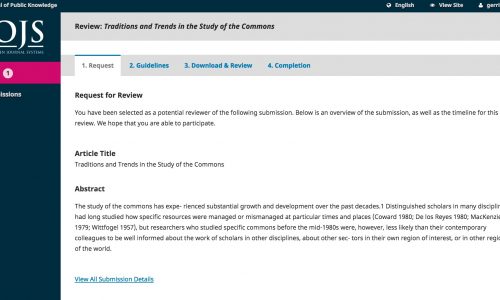Open Journal Systems (OJS) is an open source software application for managing and publishing scholarly journals. Originally developed and released by PKP in 2001 to improve access to research, it is the most widely used open source journal publishing platform in existence, with over 10,000 journals using it worldwide.
OJS Features
OJS is a comprehensive tool for managing your entire submission and editorial workflow and publishing your articles and issues online. It offers the following features:
- Responsive reader front-end with a selection of free themes or designs
- Flexible and configurable editorial workflow
- Online submission and management of all content
- Subscription module with delayed open access options
- Integrated with scholarly publishing services such as Crossref, ORCiD, and DOAJ
- Recommended by Google Scholar for ease of indexing and discoverability
- Locally installed and controlled
- Community-led and supported
- Multilingual and translated into over 30 languages
- Extensive user guides and training videos
OJS is free and open source software released under the open source GPL v2 license. You are free to download, use, and modify it at no charge. OJS is made freely available to journals worldwide for the purpose of making open access publishing a viable option for more journals, as open access can increase a journal’s readership as well as its contribution to the public good on a global scale (see PKP Publications).
PKP Publishing Services also offers a fee-based service which provides the installation and hosting of OJS, as well as performing daily backups of your data, applying security patches and upgrades, and priority answering your support questions. All revenue generated by the hosting service goes into developing PKP software and supporting the Public Knowledge Project.
“Scholars need the means to launch a new generation of journals committed to open access, and to help existing journals that elect to make the transition to open access…”
Budapest Open Access Initiative, 2002















